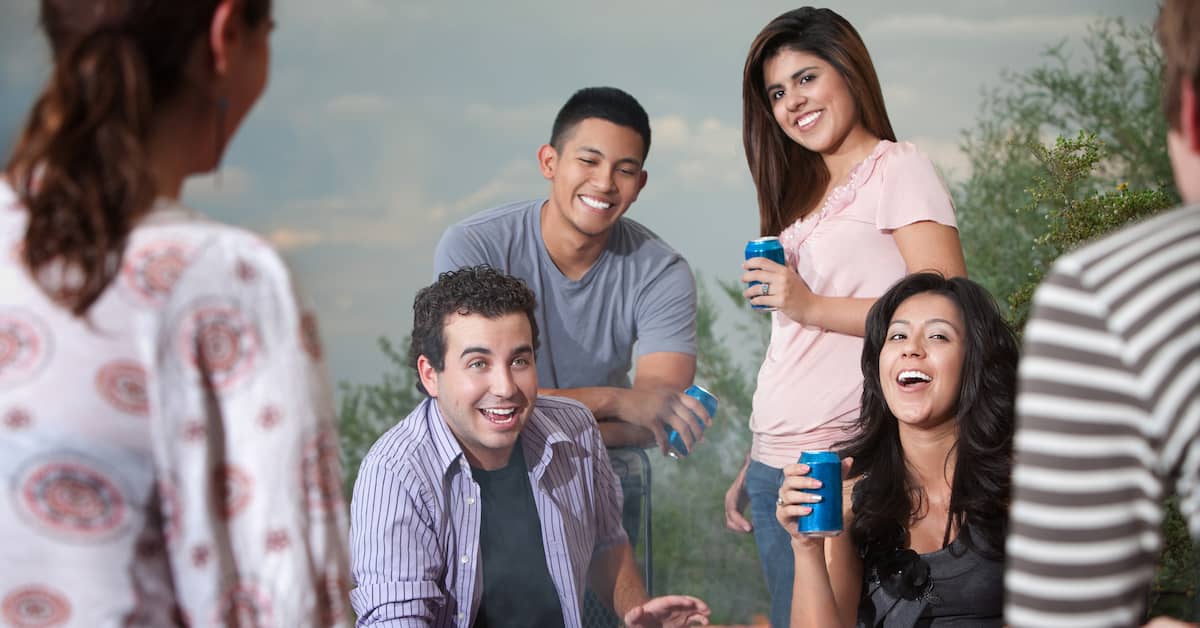
Even Those Who Don’t Get Dementia Are Affected
Even more surprising, the researchers found that lonely older people who did not suffer from dementia during the study were still at risk for negative cognitive consequences. Researchers found that loneliness in these individuals was associated with poorer executive function—the group of cognitive processes that includes decision-making, planning, cognitive flexibility, and focus. These changes in the brain can affect your daily quality of life and may also indicate vulnerability to Alzheimer’s disease and other dementias. “This study emphasizes the importance of loneliness and issues of social connection in addressing our risk of developing dementia as we age,” said lead investigator Dr. Joel Salinas in an NYU Langone Health press release.2New Research: A Call to Prioritize Brain Health
“Acknowledging signs of loneliness in yourself and others, building and maintaining supportive relationships, providing much-needed support for the people in our lives who are feeling lonely—these are important for everyone,” he explains. “But they’re especially important as we age, to increase the chances that we’ll delay or perhaps even prevent cognitive decline.” Dr. Salinas says the study serves as a reminder to prioritize brain health. “We can’t ignore the role of psychosocial factors like loneliness and the social environments we live in day-to-day,” he adds. “Sometimes, the best way to take care of ourselves and the people we love is simply to regularly reach out and check in – to acknowledge and be acknowledged.”Loneliness A Killer?
According to Psychology Today loneliness isn’t just the perception of social isolation – it can kill.3 In fact, there are numerous studies linking loneliness to an increased risk of health problems. One study discovered that loneliness is associated with a higher risk of mortality.4 And higher perceived ratings of loneliness have been linked to higher blood pressure and faster progression of heart disease.5 Where does this leave us? The loneliness plague is growing, and fast—pandemic or not. If a friend or loved one is lonely, reach out, plan to meet and be a good listener. But what if you’re the one struggling with loneliness or social isolation? Here are some tips from Verywellmind.com.- Join a class or club. It doesn’t matter if it’s an art class or a birdwatching club; this social activity can provide a sense of belonging, give you something to look forward to, and stave off the depression and anxiety that can come from being lonely.
- Adopt a pet. It’s no surprise that our furry friends offer vital companionship, a sense of purpose, and curb loneliness. Pet ownership gets bonus points for its social benefits. For example, a pet is a great conversation starter because people love commenting on a cute dog.
- Talk to strangers. Your mother may have cautioned you against this practice, but it’s an easy way to find connections in everyday life. Instead of checking your phone in the coffee shop line, strike up a conversation with a fellow caffeine lover in line. Research shows that these brief encounters contribute to our social and emotional well-being.6
- https://n.neurology.org/content/98/13/e1337
- https://nyulangone.org/news/loneliness-associated-increased-risk-dementia-older-adults
- https://www.psychologytoday.com/us/blog/mint-cognition/202202/why-loneliness-is-more- just-feeling
- https://pubmed.ncbi.nlm.nih.gov/25910392/
- https://pubmed.ncbi.nlm.nih.gov/16594800/
- Pers Soc Psychol Bull. 2014;40(7):910-922. doi:10.1177/0146167214529799
